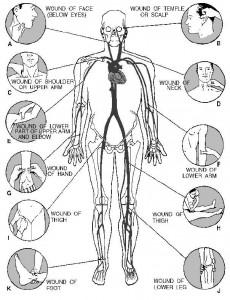After water, coffee is the most popular beverage consumed worldwide. There are countless reasons that people consume coffee on a day-to-day basis. Many people drink it to stay awake during a long day. Some people drink it in the morning to wake themselves up. According to the National Coffee Association, in 2012 over 64% of U.S. adults over the age of 18, regularly drank coffee. Many people wonder if this number is something to worry about – what kind of effect does coffee have on our overall health? Luckily for all those coffee drinkers out there, there are numerous health benefits for drinking that morning cup of joe.
In a recent study, coffee has been found to have a positive effect on Parkinson’s disease. Parkinson’s disease is a disorder caused by progressive impairment of neurons in the brain, usually occurring in the aging population. When these neurons function normally, they produce dopamine; a transmitter that serves as a messenger between parts of the brain. This lack of dopamine seen in Parkinson’s disease causes poor coordination and muscle motion, ultimately leading to loss of control of body movements. The caffeine in coffee helps prevent the dopamine deficits that are characteristic of Parkinson’s. Therefore a higher intake of coffee is associated with a lower incidence of Parkinson’s disease.
According to this same study, coffee may prevent the onset of Alzheimer’s disease as well. Alzheimer’s disease is a type of brain disorder that causes problems with behavior and memory, occurring more frequently in the aging population and those with damaged neurons in the brain. A component of coffee beans called Trigonelline showed regeneration of nerves in the brain, significantly improving memory in Alzheimer’s patients. To be clear, coffee consumption does not cause a decline in the symptoms of Alzheimer’s disease, it is associated with reduced risk of Alzheimer’s, and a reduction of some of the common symptoms of Alzheimer’s patients.
Additionally, another study showed that coffee drinking is inversely associated with mortality, meaning coffee consumption is associated with living a longer life. A comparison was done between men who drink coffee and men who don’t, and it was seen that coffee drinkers had a 10% lower risk of death. When comparing females, a 15% lower risk of death was seen in those drinking coffee. Coffee consumption was also found to be inversely related to major causes of death such as heart disease, respiratory disease, stroke, diabetes and infections.
These studies have shown that coffee consumption has an inverse relationship with death and disease of many causes. All in all, coffee is surprisingly found to have an overall positive effect on people’s health. So welcome that morning coffee, and know that it is having a positive effect on your health!
Check out this video on the positive effects of coffee!
YouTube Video Courtesy of: Natural Foods Diet
Posted by: Alex Ensing










